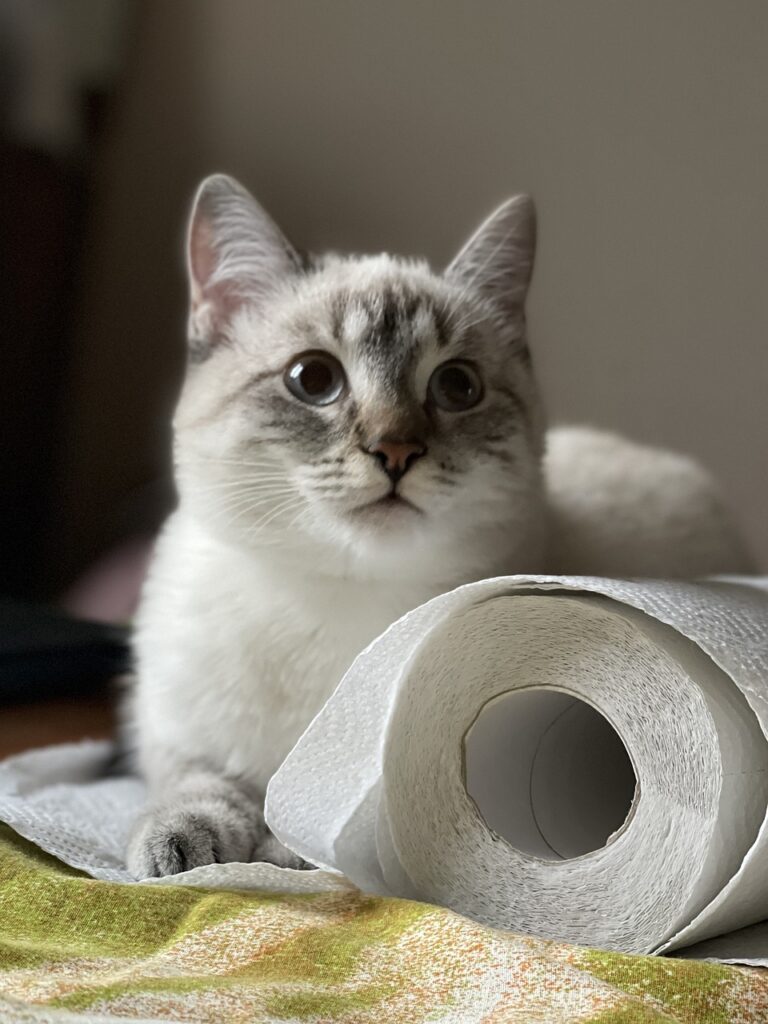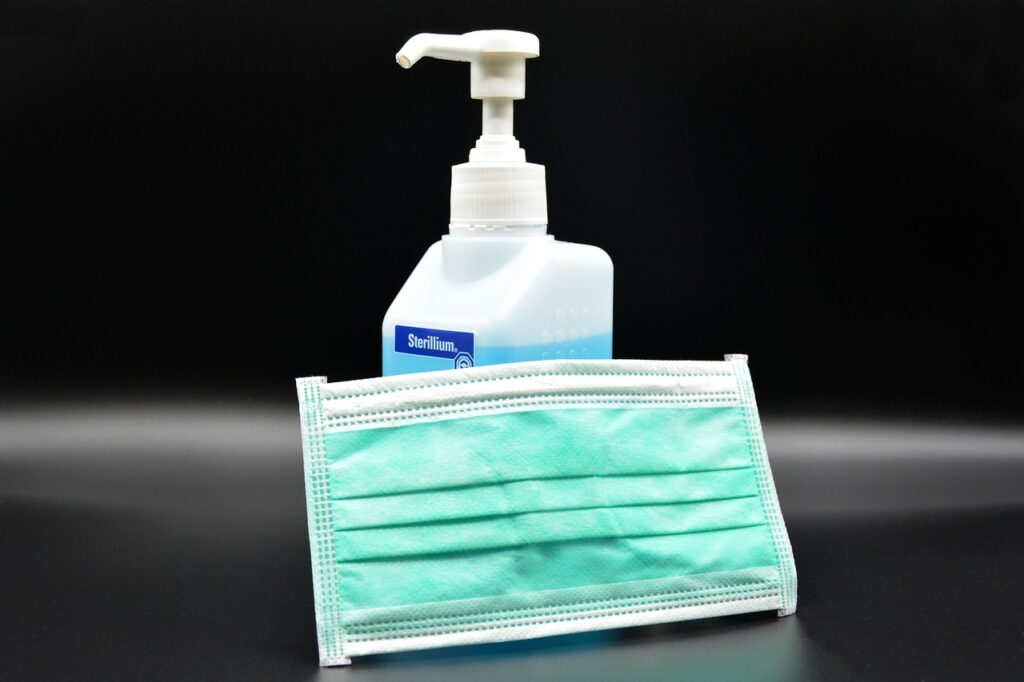Introduction
Have you ever heard someone say that cat pee can make you feel strange or silly? It might sound funny, but some people believe it. In this blog post, I am going to explain that can cat pee get you high? We’ll learn about cat pee, what’s in it, and if it can make us feel different. So, get ready to dive into the world of cats, and this journey as we investigate and provide an evidence-based answer to the question.
Can Cat Pee Get You High?
No, it is not possible to get high from cat pee but it can lead to many health issues which are explained in this article. Also, check all the precautions for your health and safety.
Cat Pee: What’s in It?
Cat pee, also known as cat urine, is the liquid waste that comes through the urinary system.
To understand if cat pee can make us feel funny, let’s learn about what it’s made of. Cat pee depends upon what a cat eats, how much water they drink, and whether they are healthy or not. On average, cat urine is about 95% water. The remaining 5% consists of dissolved substances, including:
A. Urea
Urea is a waste product produced when the body breaks down proteins. It is the main component responsible for the distinct odor of cat urine.
B. Uric acid
Uric acid is made up of the breakdown of nucleic acids in the body. It is less soluble in water than urea, which is why cat urine can leave stubborn stains and strong odors if not properly cleaned.
C. Ammonia
Ammonia is a compound that forms when urea breaks down over time due to bacterial action. It contributes to the pungent smell associated with cat urine. It’s important to note that ammonia can be irritating and harmful if inhaled in high concentrations.
D. Creatinine
Creatinine is a substance that is made when muscles work. It shows up in cat pee and can tell us how well their kidneys are working and how healthy they are overall.
E. Electrolytes
Cat pee has different substances called electrolytes (like sodium, potassium, and chloride) which are helpful for fluids and ions balance.
Is it possible to experience a high from cat pee? The answer is nuanced. While cat urine can potentially have psychoactive effects because of ammonia but they are typically not strong enough to produce a significant high, and there is no scientific evidence or research that supports the notion that cat pee can get you high.
How Cat Pee Differs from Regular Pee
Cat pee and regular pee have distinct differences. Cat pee is composed of water, waste products, and chemicals unique to cats, resulting in a strong odor. It is used by cats to mark territory and communicate. Cleaning cat pee can be challenging due to stubborn stains and smells. Inhaling cat urine fumes can be harmful to human health, as the ammonia content can cause respiratory issues.
On the other hand, our regular pee is mostly made up of water, waste products, and chemicals that our body creates. It has a milder odor and is easier to clean. Understanding these differences helps us appreciate the uniqueness of cat pee and regular pee.
Debunking the Myth
Let’s begin by unraveling the origin of the myth surrounding cat urine and its alleged ability to get you high. Online communities and forums have perpetuated this notion, leading to its widespread popularity. But when we check the available scientific evidence it shows that this idea is not true. It is essential to approach such claims with a critical mindset and rely on credible sources and scientific research to separate fact from fiction.
Health and Safety
Even though cat pee doesn’t make us feel high, we need to understand that it can be bad for our health. Cat pee contains a chemical called ammonia, which has a strong smell. Inhaling excessive amounts of ammonia can lead to many health problems which are given below.
A. Respiratory Issues
Inhaling excessive amounts of ammonia from cat pee can lead to respiratory problems. It can make our breathing system feel uncomfortable, causing us to cough, make wheezing sounds, and have trouble breathing.
B. Allergic Reactions
Ammonia fumes from cat urine can trigger allergies (skin rashes, watery eyes, and sneezing) in some individuals.
C. Asthma Exacerbation
People with asthma may experience worsening symptoms when exposed to high levels of ammonia in cat urine. It can make asthma worse and cause us to have trouble breathing, feel like our chest is tight, and make wheezing sounds.
D. Eye and Throat Irritation
The smell of ammonia can bother our eyes and throat, making them turn red, feel itchy, burn, and make our throat feel sore.
E. Headaches and Dizziness
Prolonged exposure to ammonia in cat pee can result in headaches and dizziness. These symptoms may be particularly noticeable in poorly ventilated areas or when dealing with concentrated amounts of cat urine.
D. Nausea and Vomiting
Sometimes, breathing in the smell of ammonia from cat pee can make us feel like we want to throw up.
E. Respiratory Infections
Repeated exposure to ammonia in cat pee can weaken the respiratory system, making individuals more susceptible to respiratory infections such as bronchitis or pneumonia.
F. Chemical Pneumonitis
Direct inhalation of concentrated ammonia fumes from cat urine can potentially cause chemical pneumonitis, which is an inflammation of the lung tissue. If we have this problem, it will be difficult for us to breathe. We need to get medical help right away to make it better.
G. Long-term Health Effects
If we are around a lot of ammonia in cat pee for a long time, it can start to hurt our breathing. This can happen over and over again if we keep being exposed to it. It might cause problems with our breathing for a long time.
Precautions:
A. Adequate Ventilation
Ensure proper ventilation when dealing with areas contaminated with cat urine. Open windows or use fans to help dissipate the ammonia fumes and maintain fresh air circulation.
B. Protective Gear
Wear gloves and a mask or respirator when cleaning or handling areas with cat urine to minimize direct exposure to ammonia fumes.
C. Avoid Inhalation
Avoid breathing in directly over cat urine or inhaling the fumes. Take breaks and step away from the area if you feel overwhelmed by the odor.
D. Cleaning Precautions
When cleaning cat urine, use a mild, ammonia-free cleaning solution specifically designed for pet urine. Avoid using harsh chemicals that can potentially react with ammonia and create toxic fumes.
E. Dilution
If dealing with concentrated cat urine, dilute it with water to reduce the concentration of ammonia and lessen the intensity of the fumes.
F. Prompt Cleanup
Clean up cat urine promptly to prevent prolonged exposure to ammonia. Use absorbent materials such as paper towels or specialized pet urine cleanup products to remove the urine effectively.
G. Proper Disposal
Dispose of cleaning materials and waste contaminated with cat urine properly. Seal them in a plastic bag and discard them in a trash bin outside your living area.
H. Improved Litter Box Maintenance
Regularly clean and maintain the litter box to minimize the buildup of ammonia in the environment. This includes scooping waste daily, changing litter regularly, and ensuring proper ventilation in the litter box area.
I. Hygiene Practices
After handling cat urine or cleaning up, wash your hands thoroughly with soap and water to remove any potential traces of ammonia.
J. Seek Medical Advice
If you experience persistent or severe symptoms after exposure to ammonia in cat urine, such as difficulty breathing, severe coughing, or chest pain, seek medical advice promptly.
H. Safety measures
It’s important to handle cat pee with caution, ensuring good ventilation when cleaning or dealing with areas contaminated with cat urine. Using gloves, and masks, and avoiding direct inhalation of the fumes can help reduce the risk of health problems.
Taking Care of Cats
When we talk about cat pee, we should also remember to take good care of our cats. They need clean litter boxes, fresh water, and visits to the vet. this will make them feel good and healthy.
Conclusion
So, can cat pee make us feel high? The answer is no. Even though some people think this is true, there is no scientific proof related to this concept. Cat pee doesn’t have the things that can make us feel funny or high like drugs do. However, we still need to handle cat pee carefully because it can be harmful to our health. Remember to take good care of your cats and always rely on reliable information when it comes to unusual claims like this one.
Frequently Asked Questions
Are there any documented cases of people getting high from cat pee?
There are no documented cases or scientific studies supporting the claim that people can get high from cat pee. It is likely to be a misconception or a result of misinformation.
Can the smell of cat pee alone cause any psychoactive effects?
No, the smell of cat pee alone does not have any psychoactive effects or induce a high.
Are there any alternative explanations for claims of getting high from cat pee?
The claims of getting high from cat pee are likely to be based on misunderstandings, rumors, or anecdotal experiences. It is important to rely on scientific evidence when evaluating such claims.
What precautions should I take when handling or cleaning cat urine to minimize health risks?
When handling cat urine, it is important to wear gloves, use proper ventilation, and avoid direct inhalation of the fumes. Cleaning should be done promptly using appropriate cleaning products and following recommended safety guidelines.
Is there any scientific research or evidence supporting the notion of cat pee causing a high?
No scientific research or evidence is supporting the claim that cat pee can cause a mind-altering high in humans. It is essential to rely on accurate information based on scientific studies.






